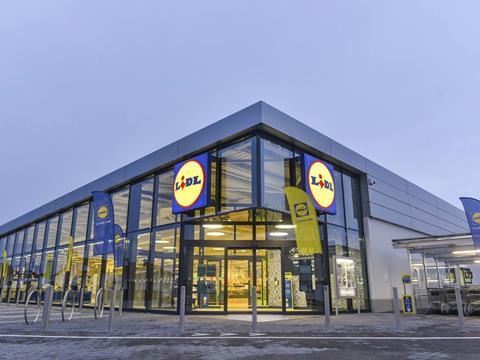Discounter is making packaging more appealing to kids and removing cartoon characters from unhealthy products
Lidl has called on other British supermarkets to follow its lead and introduce packaging design changes to help make fruit and veg more appealing to children.

The discounter made its call after it saw sales increase by over a third on its specially designed Oaklands Funsize fruit range, which was first introduced in 2017.
Lidl claims to be the first British supermarket to introduce a range of healthy products specifically designed to encourage children to eat more greens. The collection comprises of fresh fruit and veg with quirky names and cartoon characters, such as Banana-Llamas and Tawny Tomatowl.
To further engage youngsters, competitions were held to name and design cartoon characters. The result has been the introduction of numerous characters, including Koala Pears, which led to nearly a quarter of a million additional units being sold the year after the competition closed.
No more cartoon characters on unhealthy products
Doubling down on its bid to help children eat healthier diets and aid parents in combating ‘pester power’, the discounter has announced it will also remove cartoon characters on unhealthy products by spring next year.
Over 14 different product categories will be impacted, such as sweets, chocolates and savoury snacks, with at least 30 products getting a fresh look, including the retailer’s Sweet Fruit Chews and Multicoloured Fizzy Belts.
The move follows Lidl’s removal of cartoon characters from cereal packaging in 2020. It said the changes mark a significant step in helping families across the country make healthier choices, after research revealed that over two thirds (68 per cent) of parents found child-friendly characters on unhealthy food and drink packaging made it more difficult to feed their children a healthy diet.
Peter de Roos, chief commercial officer at Lidl GB, said: “Our ambition is to make high-quality, healthy food accessible to all, and the principal way we achieve this is through our best value prices. But we also recognise that there are other barriers in place, particularly concerning children, and parents are telling us that unhelpful packaging is one of them.
”This is something that’s so simple for us supermarkets to change, and our results show the positive impact that these small changes can make. We hope other supermarkets follow in our footsteps so that, as a sector, we can be confident we’re doing all we can to support parents in helping to improve the diets of the next generation.”



